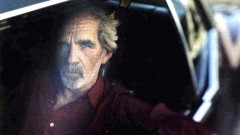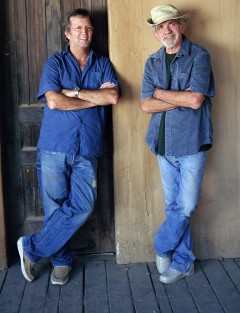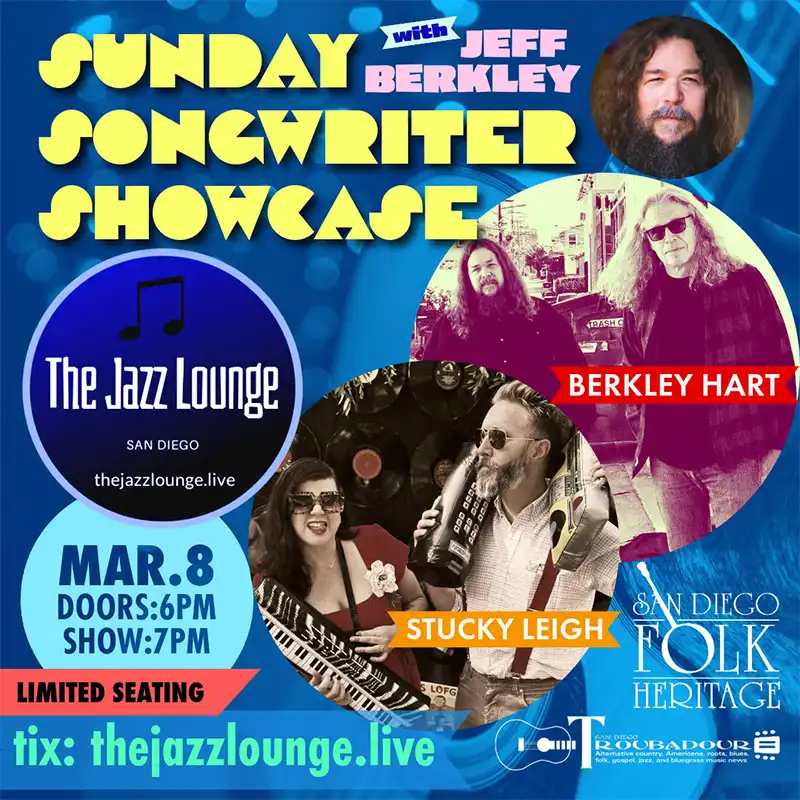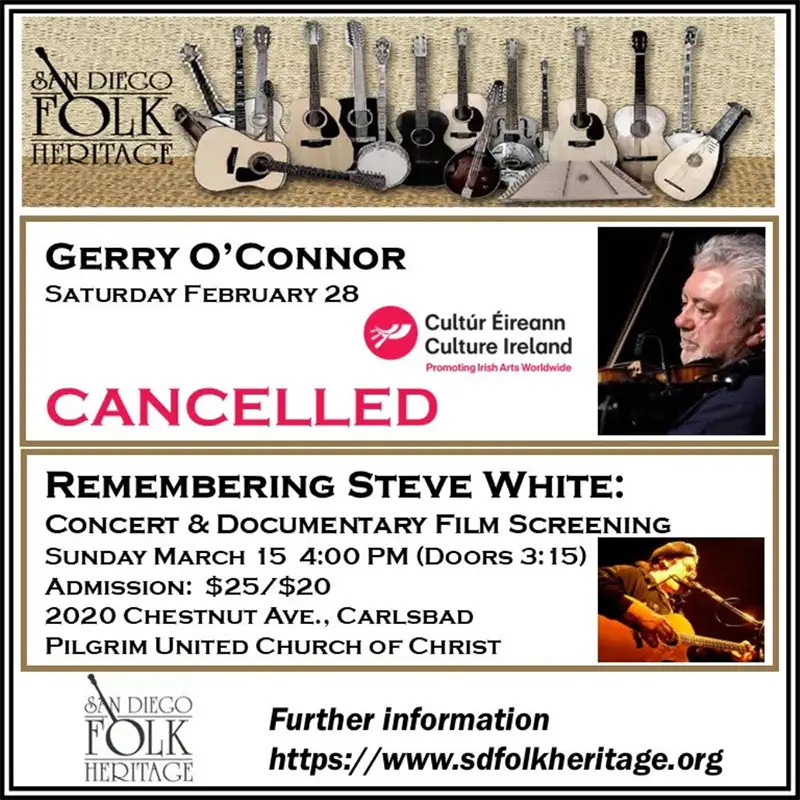Yesterday And Today
Living on Tulsa Time via the Road to Escondido: J.J. Cale Remembered

JJ Cale

Eric Clapton with JJ Cale
On July 26, 2013 the music world lost one of its most respected songwriters and guitarists with the unexpected death of J.J. Cale at Scripps Green Hospital in La Jolla. Cale passed away after suffering a heart attack. He was 74.
During his lifetime Cale released over 25 albums in a career that spanned more than five decades (his first release was in 1958 with the single “Shock Hop” under the name Johnny Cale). Many listeners, however, will be familiar with his work through the numerous cover versions that were recorded by scores of famous appreciators, including Johnny Cash, Waylon Jennings, Captain Beefheart, the Allman Brothers, Tom Petty, Dire Straits, and Phish. Most notable of them all is Eric Clapton who covered several of Cale’s tunes including “After Midnight” (a #18 hit from 1970’s Eric Clapton), “Cocaine” (a #30 hit from 1977’s Slowhand), “I’ll Make Love to You Anytime” (from 1978’s Backless), “Travelin’ Light” (from 2001’s Reptile), “River Runs Deep” and “Everything Will Be Alright” (from 2010’s Clapton), and “Angel” (from 2013’s Old Sock). “Eric’s been paying my rent for a long time,” said an appreciative Cale. “I’d probably be selling shoes today if it wasn’t for him.” The two guitarists eventually teamed up in 2006 to record The Road to Escondido, which ended up winning a Grammy award for Best Contemporary Blues Album in 2008.
Lynyrd Skynyrd recorded a version of Cale’s “Call Me the Breeze” on their 1974 LP Second Helping and “I Got the Same Old Blues Again” on 1976’s Gimme Back My Bullets. When asked what he thought of Skynyrd’s version of “Call Me the Breeze” Cale responded with, “Oh, I just love that. That also helped my bank account too. Yeah, Lynyrd Skynyrd, I knew them guys. They cut it before the plane crash that killed two or three of them.”
“Basically, I’m just a guitar player that figured out I wasn’t ever gonna be able to buy dinner with my guitar playing so I got into songwriting, which is a little more profitable business,” he said.
John Weldon Cale was born on December 5, 1938 in Oklahoma City and was raised 100 miles away in Tulsa where the shuffling, melodic sounds of Chet Atkins, Les Paul, and Clarence “Gatemouth” Brown first pricked up Cale’s ears. He is so identified with his hometown that his music is often described as the “Tulsa Sound,” a hybrid of rockabilly, blues, jazz, and country. If there were ever a musician who was the very definition of laconic, it was J.J. Cale. “Mellow and laid-back are the two terms most applied to my style and I guess I go along with that,” he said. “Most of it is medium, slow-tempo, not really an aggressive, in-your-face thing. When I was young I played a lot more rock and roll but when I got into songwriting and had to sing, since I only have a two-note range, it was easier to do mellow.”
As an acclaimed engineer many of the tracks that he recorded sound like glorified demos after he discovered drum machines in the early 1970s. On his first solo album, Naturally (1972), Cale said that the sound was born from a practical necessity: “In addition to vocals and guitar I’m also playing piano and bass. On “Crazy Mama” and “Call Me the Breeze” those were electric drum machines. I first started out doing that because of the economics — I didn’t have enough money to hire a band. Now that I have enough money to hire a band I still like that. It’s kind of an art form in itself.”
The only time that Cale ever had a chart hit of his own in the U.S. was with the song “Crazy Mama” in 1972 (it peaked at #22 on Billboard’s Hot 100).
Throughout his career Cale shunned the spotlight and did not like to tour, proclaiming, “send me the money and let the younger guys have the fame. Fame elevates your ego to the point where you start believing your own bullshit.” With an attitude like that it wasn’t too surprising that when Cale left Tulsa in the early sixties and moved to Nashville, he ended up struggling to make ends meet for over a decade. In 1965 fellow Tulsa musician Leon Russell suggested to Cale that he should come out to Los Angeles where he could end up finding regular work. During this period he cut three singles for Liberty records, including a B-side titled “After Midnight.” In 1967 he also recorded with a group called the Leathercoated Minds and made an album of psychedelic covers called A Trip Down the Sunset Strip, which he subsequently described as “terrible.” It was during this period that he took on the moniker of “J.J. Cale” so that he wouldn’t be confused with Welsh musician John Cale, co-founder of the Velvet Underground.
By the end of the sixties, after failing to make a go of it in Los Angeles, he considered giving up music completely. When Delaney Bramlett played some of Cale’s demos for Eric Clapton in 1969, Clapton responded by recording Cale’s “After Midnight” for his solo debut. Cale wasn’t even aware of Clapton’s recording of the song until he heard it on the car radio. “I almost drove off the road and I thought, ‘oh, boy I’m gonna buy me a new car.’ I was dirt poor, not making enough to eat, and I wasn’t a young man. I was in my thirties, so I was very happy. It was nice to make some money.”
When the single hit the top 20 it served as a catalyst for Cale to land his own recording contract with Leon Russell and Denny Cordell’s Shelter records, beginning a long association with the Tulsa-based label. A string of albums followed: Naturally (1972), Really (1973), Okie (1974), Troubadour (1976), Five (1979), and Shades (1981).
In his autobiography Eric Clapton wrote that he was “tired of the guitar hero thing, and I was starting to follow the example of J.J. Cale. When I listened to his records I was impressed by the subtlety, by what wasn’t being played. He’s one of the most important artists in the history of rock, quietly representing the greatest asset his country has ever had. It’s all about finesse.”
“She don’t like, she don’t like, she don’t like…cocaine.”
Clapton was also quick to point out that Cale’s “Cocaine” is actually an anti-drug song, saying that “it’s no good to write a deliberate anti-drug song and hope that it will catch. Because people, in general, will be upset by that. It would disturb them to have someone else shoving something down their throat. So the best thing to do is offer something that seems ambiguous. But if you study it or look at it with a little bit of thought it is quite cleverly anti-cocaine.” Although Clapton had the bigger hit with the song throughout most of the world, Cale’s version actually went to number one in New Zealand of all places.
In the Neil Young biography Shakey, Young told biographer Jimmy McDonough, “What is it about J.J. Cale’s playing? I mean, you could say Eric Clapton’s the guitar god, but he can’t play like J.J. Cale. J.J.’s the one who played all that shit first. And he doesn’t play very loud, either — I really like that about him. He’s so sensitive. Of all the players I ever heard, it’s gotta be Hendrix and J.J. Cale who are the best electric guitar players. J.J. is my peer, but he doesn’t have the business acumen — he doesn’t have the idea of how to deal with the rest of the world that I do. But musically, he’s actually more than my peer, because he’s got that thing. I don’t know what it is.”
In his autobiography Waging Heavy Peace Young wrote that “J.J.’s guitar playing is a huge influence on me. His touch is unspeakable. I am stunned by it.”
After Cale’s association with Shelter records ended he moved to California and recorded two albums for Polygram: Grasshopper (1982) and Number 8 (1983). When neither of those albums sold he asked to be released from his contract and became a recluse, living in a trailer without a telephone. Asked how he spent his time during the 1980s he said: “Mowing the lawn and listening to Van Halen and rap music.” It would be seven years before he released another album with 1990’s Travel-Log.
Two more albums for the Silvertone label followed with 1992’s Number 10 and 1994’s Closer to You. He released a pair of albums for Virgin records: 1996’s Guitar Man and 2001’s Live, and produced To Tulsa and Back for Sanctuary in 2004. His final record, the spectacular Roll On was released in 2009 for the Rounder label.
While promoting To Tulsa and Back, Cale spoke to National Public Radio. When asked if any contemporary music was influencing him he responded by saying that he “tried to steal a little bit from everybody [laughs]. I’ll hear a rap record I really like and I’ll go, ‘Wow, that bass drum really has a nice tone to it,’ and I’ll try to pull that tone off of it, like a Juvenile’s record or a 2Pac record. I’ll take it in little sections because I am an engineer. And maybe I’ll hear a country song and I’ll go ‘I like the way the voice sounds on that so I’ll try to emulate that.’”
Responding to critics who suggest that all of Cale’s records sound the same he said, “When I made the first album Naturally, that was probably my most popular album and then all the rest of the albums I made they said, ‘Well, that’s great, but he’s not doing anything new,’ which in the commercial record business you’re supposed to keep changing, you know, and mystifying and surprising your audience. I never tried to do that — well, let me put it this way, I did try to do that but I’m not any good at it so I just try to do what I know. The nice thing about that is there’s 400 million other records out there they can also get, but I agree with my critics that most of my albums have a sameness to them, but…that’s me,” he says with a laugh.
In a 2009 L.A. Times interview Cale says that the Escondido city fathers tried to contact him after The Road to Escondido won a Grammy. “They wanted me to talk to the chamber of commerce,” he recalled. “And I said, you know, I’m not a chamber-of-commerce kind of guy.”
“I kind of write songs hoping that musicians will take them and make them better and more accessible,” he said. “When my songs started raking in some funds I thought, ‘What’s the use of working all the time?’ I believe in no work at all if you can get away with it. I’d recommend writing songs. You get all of the money and none of the bother.”
On the www.jjcale.com website it says that Cale “was a great lover of animals, so if you like, you can remember him with a donation to your favorite local animal shelter.” It seems a fitting and compassionate gesture for a man who lived an unpretentious existence and sang about the simple pleasures in life.
J.J. Cale is survived by his wife and musical collaborator Christine Lakeland Cale.








